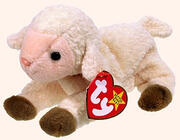The Church Of Brando
1 “Do not judge, or you too will be judged.
2 For in the same way you judge others, you will be judged, and with the measure you use, it will be measured to you.
3 “Why do you look at the speck of sawdust in your brother’s eye and pay no attention to the plank in your own eye?
4 How can you say to your brother, ‘Let me take the speck out of your eye,’ when all the time there is a plank in your own eye?
5 You hypocrite, first take the plank out of your own eye, and then you will see clearly to remove the speck from your brother’s eye.
please click the cross to continue
♱

Does your diet defy the word of the lord?
7
And the pig, though it has a split hoof completely divided, does not chew the cud; it is unclean for you.
8
You must not eat their meat or touch their carcasses; they are unclean for you.
9
"`Of all the creatures living in the water of the seas and the streams, you may eat any that have fins and scales.
10
But all creatures in the seas or streams that do not have fins and scales--whether among all the swarming things or among all the other living creatures in the water--you are to detest.
11
And since you are to detest them, you must not eat their meat and you must detest their carcasses.
12
Anything living in the water that does not have fins and scales is to be detestable to you. Jesus said, "On this rock I will build My church, and the
gates of hell shall not prevail against it." - Matthew 16:18
♱

THE CHURCH
The church that Jesus built was HIS church. Jesus Christ is Himself its foundation (I Cor. 3:11). He is the Savior of the church (Eph. 5:23). It was purchased with His blood (Acts 20:28). He is the Head of the church (Col. 1:18). The church is the bride of Christ (II Cor. 11:2). The church is the body of Christ (Eph. 1:23). The Bible says there is only one church (or body) (Eph. 4:4).
Since the church belongs to Jesus Christ, the New Testament is our only reliable guide to the church's organization and the regulations for entering His church. No man-made churches are described or authorized in the Bible (Psm. 127:1).
The New Testament often refers to "the church" in a universal sense, encompassing the entire family of God throughout the world (Mark 16:15). Also, the scriptures frequently refer to "the church" in a local sense (I Cor. 1:2).
The Bible authorizes no organization for the universal church, except Jesus, who is the absolute ruler (Eph. 1:20-23) with absolute authority (Matt. 28:18). The New Testament does present Christ's plan for the organization of the local church.
The only way to construct the true, original organization that God approves of is to look into the scriptures. Let us examine the organization of the local congregation in the first century.
♱

Are you accepting of your neighbors and creations of our lord?
God did not send His son into the world to condemn the world, but to save the world through Him.
John 3:17
Wholesome speech is a tree of life, but dishonest talk breaks the spirit.
Proverbs 15:4
“Whoever does not love does not know God, because God is love.” John 4:8
“No one has ever seen God; but if we love one another, God lives in us and his love is made complete in us.” 1 John 4:12
“Do not repay evil with evil or insult with insult, but with blessing, because to this you were called so that you may inherit a blessing.”
1 Peter 3: 9
The Lord does not look at the things man looks at. Man looks at the outward appearance, but the Lord looks at the heart.
1 Samuel 16:7
If you really keep the royal law found in Scripture, 'Love your neighbor as yourself,' you are doing right.
James 2:8
Love can't change the fact of death, but love can live through it and thereby defeat death.
♱

MEMBERS
The church was established in Jerusalem on Pentecost, about 33 A.D. (See Acts 2). After this, the New Testament makes no reference to anyone being saved without being in the church. God automatically adds the saved to the church (Acts 2:47). Entrance into the church (the body of Christ) occurs with baptism (Gal. 3:27, I Cor. 12:13, Acts 2:38-41).
In the first century church, members were simply called "Christians" (Acts 11:26, I Pet. 4:16). They were also referred to as "saints" (Acts 26:10, Rom. 1:7, I Cor. 1:2, Eph. 1:1). Christians were also considered to be "priests" (Rev. 1:6, I Pet. 2:9).
The New Testament is filled with instructions for Christians, including how to act, how to respond to others, and how to serve God (II Tim. 3:16-17, Titus 2:2-8).
Though men and women are equally valuable in God's eyes, they are to fill different roles in His church. It is by God's design that women are not permitted to assume positions of church leadership (I Cor. 14:34, I Tim. 2:12).
From among the members are chosen teachers, preachers, deacons, and elders.
♱

TEACHERS
All Christians are expected to be able to teach the lost (I Pet. 3:15, Matt. 28:19). All Christians were told to "teach and admonish" one another in the first century (Col. 3:16). Those qualified with considerable knowledge of the Scriptures can teach in a more formal manner. Those who do, have greater responsibility (James 3:1).
God expects teachers to present the Word accurately and fully (II Tim. 2:15, Acts 18:26, Matt. 28:20). The scriptures gravely warn Christians about false teachers (II Cor. 11:13-15, II Tim. 4:3-4, I Tim. 4:1-3, Matt. 24:24).